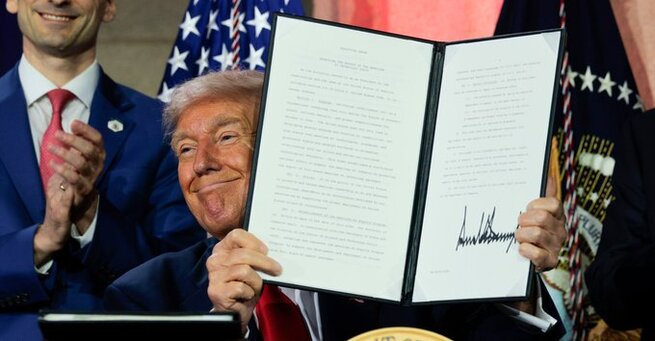
Trump’s Woke AI Ban: What It Means for Government and Big Tech
Former President Donald Trump has issued a sweeping executive order titled “Preventing Woke AI in the Federal Government,” triggering major implications for AI policy. The order mandates that federal agencies avoid AI models deemed biased toward progressive ideologies like diversity, equity, and inclusion (DEI). This woke AI ban marks a sharp shift in how the government will regulate its use of large language models (LLMs), directly impacting not only federal procurement but potentially the broader AI industry as well. The directive is already stirring debates around free speech, censorship, and AI neutrality across Silicon Valley and Washington.
How the Woke AI Ban Could Reshape Government Tech Use
The executive order focuses on ensuring that AI models used by federal agencies are “truthful,” “objective,” and free from “ideological dogmas.” It specifically calls out concepts like critical race theory, transgender identity, unconscious bias, and intersectionality. Under this new guidance, models that include training data or generate responses touching on DEI concepts could be disqualified from federal use. While supporters claim the move ensures factual accuracy, critics argue it could politicize AI development by restricting models that reflect social justice or civil rights perspectives. The Office of Management and Budget is expected to issue clearer implementation rules within 120 days.
Ripple Effects on Commercial AI Models and Developers
Although the executive order directly targets government procurement, its consequences are likely to extend into the commercial realm. Many major AI companies create universal models that serve both enterprise and public markets. This woke AI ban could pressure companies like OpenAI, Anthropic, and Google DeepMind to produce sanitized, ideologically neutral versions of their models to stay compliant and competitive. There’s growing concern that this will chill innovation or reduce the usefulness of AI systems in sensitive contexts, including education, workplace training, and healthcare. Developers now face a dilemma: adhere to political mandates or uphold inclusive and diverse AI outputs.
What’s at Stake for AI Freedom and Public Discourse
This move sets a precedent for ideological control over artificial intelligence, raising fundamental questions about who decides what “neutral” really means. While Trump’s supporters argue that the woke AI ban is about cutting back on liberal bias in technology, critics say it’s a tool for enforcing political conformity. With AI systems increasingly shaping how people search for information, make decisions, and communicate, regulating their political tone could have wide-reaching consequences. Whether this order leads to better-balanced AI tools or a chilling effect on free expression remains to be seen, but the national conversation has already begun.
𝗦𝗲𝗺𝗮𝘀𝗼𝗰𝗶𝗮𝗹 𝗶𝘀 𝘄𝗵𝗲𝗿𝗲 𝗿𝗲𝗮𝗹 𝗽𝗲𝗼𝗽𝗹𝗲 𝗰𝗼𝗻𝗻𝗲𝗰𝘁, 𝗴𝗿𝗼𝘄, 𝗮𝗻𝗱 𝗯𝗲𝗹𝗼𝗻𝗴. We’re more than just a social platform — from jobs and blogs to events and daily chats, we bring people and ideas together in one simple, meaningful space.